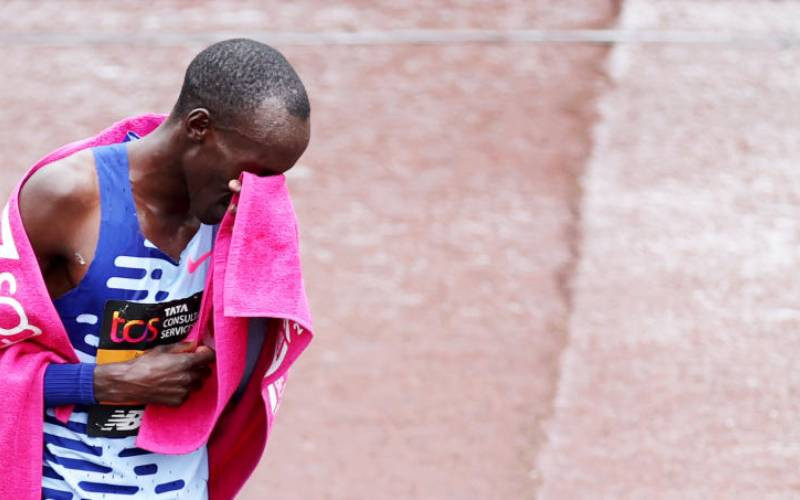NAIROBI: If there is anything that Bernard Orinda Ndege would fervently wish to erase from his memory, it is the year 2008 and the events that followed the disputed December 2007 General Election; but he cannot.
Mr Orinda lost nine members of his family in a most excruciating way and he himself bears scars that remind him of the period. After violence broke out following the disputed elections, Mr Orinda, his wife and children were locked in his rental house in Naivasha by unknown thugs who went ahead and set it on fire.
He survived to tell the story, but his family did not. We can only imagine the physical and emotional pain he felt at the time and even now. He is not alone in this predicament. There are thousands who still grieve for their loved ones.
Churches are ordinarily regarded as sacred and hallowed grounds. Nobody in his right frame of mind would perpetrate a crime within the precincts of a church, but in 2008, hundreds of besieged citizens sought refuge at the Kiambaa church in Eldoret in the heat of the post-election violence and ended up losing their lives after reprobates locked them in the church and set it on fire. The few who escaped the burning building were hacked to death by fellow Kenyans in the church’s compound.
These are the painful realities we cannot run away from, yet some leaders, especially politicians, are hell-bent on self-preservation. They have been traversing the country holding prayer meetings for Deputy President William Ruto and journalist Joshua Sang in the hope that the almighty God will intervene and have the duo overcome their crime against humanity cases at the international Criminal Court in The Hague.
These leaders have a right to hold those prayer meetings; it is their constitutional and democratic right to so. It is also the right of those accused to be allowed to prove their innocence. But the leaders holding the rallies seem to go on in complete disregard of the fact that there are people who lost families, valuables and everything else they cherished in the madness.
The leaders holding prayer meetings across the country have not spared a thought for the actual victims, the dead and individuals who suffered emotional and physical harm. There are those who died at the hands of security forces but the leaders holding prayer meetings seem to suggest nothing happened during the period in question; that perhaps it was a nightmare.
In truth, however, over 600,000 people were displaced by the chaos; some of whom still live in internally displaced camps. Almost 1,200 people lost their lives in the madness that engulfed the country. They were people with families and relatives who still suffer nightmares to-date. The least we can do is to offer prayers for them as well.
We cannot ignore the plight and pain of these innocent victims who suffered pain and loss while politicians from both sides of the political divide engage each other in blame games over what happened during that ignoble period. In actual sense, the confessions being made by some of the elected leaders on their role in doing anything, including buying false witnesses to keep power in their hands, make a mockery of the whole issue.
It brings out the selfishness inherent in politicians who use the public in their political games and don’t give a thought to the consequences of their actions.
In the final analysis, the innocence or culpability of the accused will not be determined by prayer meetings, but by the ICC court.
 The Standard Group Plc is a
multi-media organization with investments in media platforms spanning newspaper
print operations, television, radio broadcasting, digital and online services. The
Standard Group is recognized as a leading multi-media house in Kenya with a key
influence in matters of national and international interest.
The Standard Group Plc is a
multi-media organization with investments in media platforms spanning newspaper
print operations, television, radio broadcasting, digital and online services. The
Standard Group is recognized as a leading multi-media house in Kenya with a key
influence in matters of national and international interest.
 The Standard Group Plc is a
multi-media organization with investments in media platforms spanning newspaper
print operations, television, radio broadcasting, digital and online services. The
Standard Group is recognized as a leading multi-media house in Kenya with a key
influence in matters of national and international interest.
The Standard Group Plc is a
multi-media organization with investments in media platforms spanning newspaper
print operations, television, radio broadcasting, digital and online services. The
Standard Group is recognized as a leading multi-media house in Kenya with a key
influence in matters of national and international interest.





